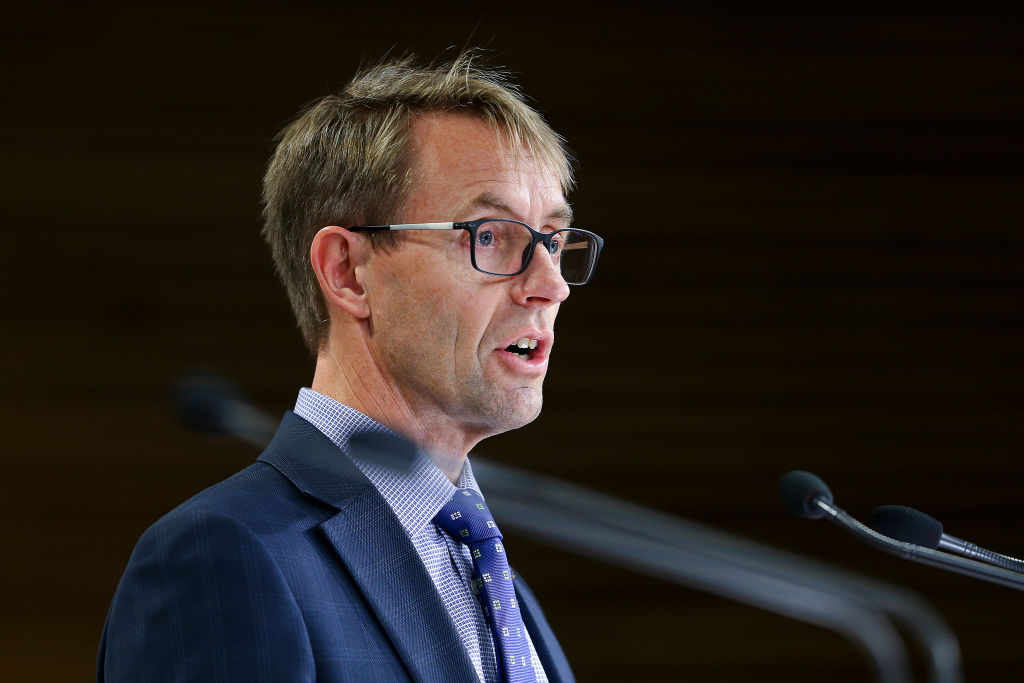
Oliver Christiansen's dad lay dying and asking: "Where is my boy? Where is my boy?"
But Christiansen couldn't see him - he was subject to the Government's mandatory 14-day isolation period after arriving in New Zealand on April 23 on a flight from the United Kingdom.
He had decided to leave his family in London and return to New Zealand to sit out the quarantine period, and spend his father's last days with him. But his father's condition declined dramatically.
Doctors gave the man, who had brain cancer, only a few days to live and suddenly it was a race against the clock.
Christiansen, who had no symptoms of coronavirus, applied to the Ministry of Health to allow him to see his father. The ministry repeatedly refused. He asked for a Covid-19 test - but was refused because he has no symptoms.
So Christiansen went to court to challenge Director-General of Health Dr Ashley Bloomfield and the ministry's refusal to allow him to cut short his quarantine period.
At a hearing on Friday in the High Court at Auckland, Justice Tracey Walker said the ministry got it wrong and it was "difficult to envisage more compassionate grounds than those presented here".
Christiansen told The New Zealand Herald he was able to spend just over 24 hours with his father before he passed away on Sunday.
In a ruling released today, Justice Walker said: "In this particular case, there is a very strong argument, in my judgement, that the permission for Mr Christiansen to visit his dying father was not considered on the correct legal grounds and did not take account of relevant mandatory considerations".
"It had the hallmarks of automatic rejection based on circumscribed criteria rather than a proper exercise of discretion required by the Health Act (Managed Air Arrivals) Order."
The judge said the Ministry of Health's decisions to decline permission were, on their face, "legally flawed on more than [one] basis".
"Had the correct approach been followed, Mr Christiansen's application may have successfully come within the compassionate grounds (with low risk of transmission) or exceptional circumstances categories."
The judge said, in her assessment, overall justice "demands an effective and swift response".
"I have in mind here particularly the imminence of Mr Christiansen's father's passing and the very material factor that visitation is only at a private home and not in a public space."
She ordered the ministry to allow Christiansen to leave managed isolation to visit his father.
But he could only do so if he travelled unaccompanied by car to his dad's home and remained there until his father died.
Christiansen was also told to maintain physical separation from other family members at the home and to return on his own within 24 hours of his father's passing in the same car to the isolation facility for the remainder of the 14-day period.
Justice Walker further told him to ensure any necessary cleaning and/or quarantining of that private car is carried out, to wear personal protective equipment, including gloves and a face-mask, to comply with any monitoring requirements by police or officials, and to comply with any other reasonable conditions directed by the Ministry to reduce any risk of transmission.
The judge also considered the question of "the appropriate deference to the expertise of the decision makers in a time of unprecedented public crisis".
"No matter how necessary or demonstrably justified the Covid-19 response, decisions must have a clear and certain basis," she said.
"They must be proportionate to the justified objective of protecting New Zealand bearing in mind the fundamental civil rights at issue – freedom of movement and of assembly in accordance with the New Zealand Bill of Rights Act 1990."
There have been several questions raised about the legality of the Government's strict lockdown orders in response to the pandemic, which have heavily curtailed individual rights and liberties.
Such concerns have included a Crown Law opinion warning police they had little or no power to enforce the lockdown.
Last Friday, the president of the Court of Appeal, Justice Stephen Kós, said the issue of whether the Government's coronavirus decisions have been lawful should be tested in an expedited judicial review.












